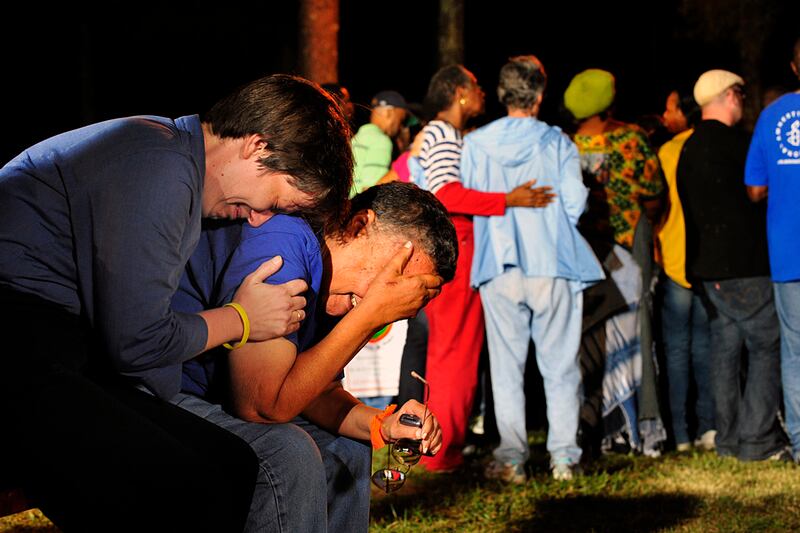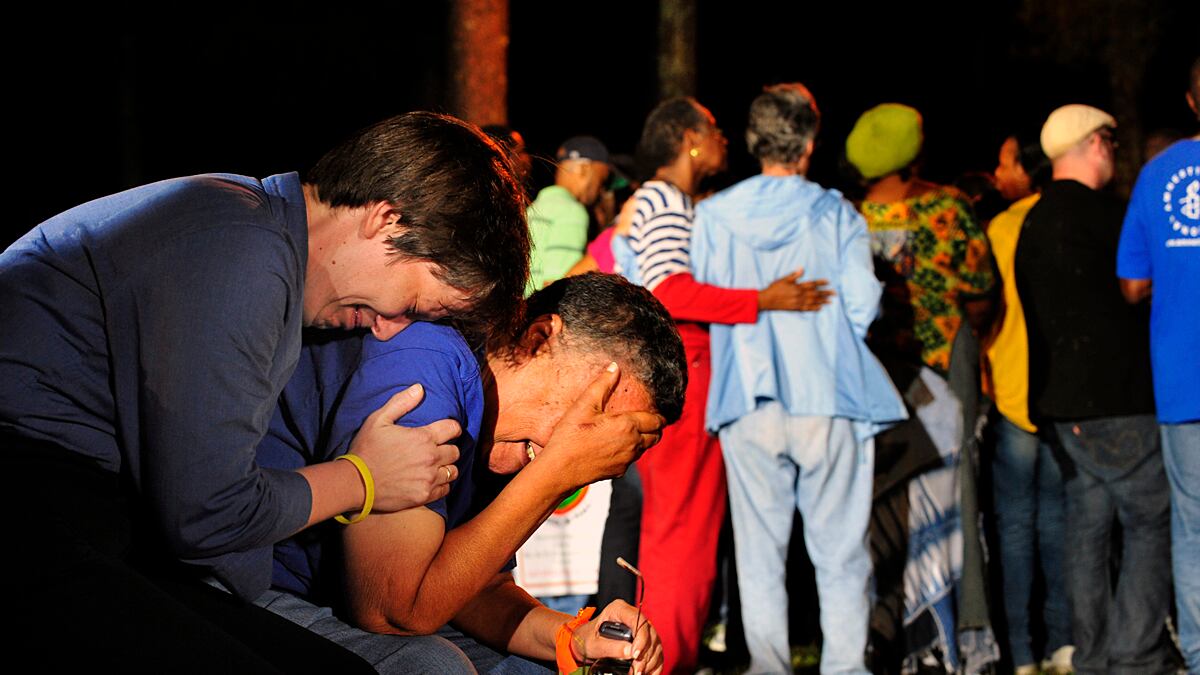“A robin redbreast in a cage / Puts all heaven in a rage,” wrote William Blake. As the Supreme Court delayed the execution of Troy Davis, Blake’s angry sentiment made you want to hang your head in shame. Here was a possibly innocent man not only imprisoned in a cage, but about to be killed by the state.
The idea that even a shred of doubt exists about whether Davis committed the 1989 crime of which he was convicted—shooting to death an off-duty policeman in Savannah, Ga.—should make a society either grind to a halt or erupt. Davis’s conviction has a thick cloud of doubt hanging over it. But as the executioners in Georgia waited for the Supreme Court’s decision about whether to proceed, you felt the public conversation impatiently drumming its fingers. In the end, the court declined to block the execution, and Davis was killed at 11:08 p.m. Now the question of America’s sick passion for capital punishment will slide away like a baseball score.
When I heard that Davis’s case was in the hands of the Supreme Court, I thought that finally the executioner’s hand would be permanently stayed and justice would be done. After all, three of the Supreme Court justices are devout Catholics. As such, they are certainly familiar with the Catholic concept of “seamlessness.”
According to that doctrine, a moral stance that places human life above any other consideration has to be consistent with other situations in which human life is at issue. If you are pro-life, you must also be against assisted suicide, against war in most cases, and absolutely against the death penalty. For the sake of moral consistency.
True, the notion of “seamlessness” is the product of liberal Catholic theology and the three devoutly Catholic justices—Roberts, Scalia, and Alito—are hardly liberals, either judicially or theologically. But I thought the idea has the type of sophisticated Jesuitical elegance that might appeal to men who pride themselves on their intellectual capacity. Why shouldn’t their pro-life fervor also embrace a disgust for the practice of mere mortals—grossly flawed and imperfect, morally deformed by original sin—deciding whether to take another mortal’s life in cold blood?

The Supreme Court chose not to take the side of life in Troy Davis’s case. And Davis’s supporters, in not seizing on the doctrine of seamlessness themselves, missed a dramatic opportunity to make an issue not just of Davis’s innocence, but also of the ongoing state crime of capital punishment.
As it happened, on the same evening Davis was to be executed, another execution took place over which there was no controversy at all. Lawrence Brewer was executed for the horrendous crime of dragging a black man named James Byrd Jr. to death behind a pickup truck in 1998. His two accomplices also were convicted, with one serving a life term in prison and the other’s death sentence under appeal. But there was no outcry over Brewer’s state-mandated death. No demonstrators protested outside the White House or in front of the prison where Brewer was kept, or outside American embassies throughout much of the world. On the contrary, at least one of Davis’s black supporters wrote that the lesson to be drawn from both cases was that Brewer deserved to die while Davis did not.
If anyone deserved indifference, it was the white-supremacist Lawrence Brewer. His guilt was proved beyond a reasonable doubt, and he was unrepentant to the last, reportedly saying that he would kill Byrd in the same way if he could do it over again. That was all the more reason to seize on the opportunity of the teeming, well-organized outcry against Troy Davis’s execution. The seamless opposition to the state-sponsored murder of both men would have been morally irrefutable.
The only place where seamlessness seems to be alive and well is in our increasingly relativized pubic environment. Davis’s scheduled execution received more and more attention as its hour approached, but nothing like some previous causes célèbres over the past few months. If Davis’s impending execution had, in the same time period, received half the attention lavished on Anthony Weiner, the earthquake that barely was, the hurricane that wasn’t, and a dozen other subsidiary collective obsessions—e.g., Charlie Sheen’s world-historical roast—the question of capital punishment itself might be at the center of debate, and not only the question of Troy Davis’s innocence.
You would think that the possibility of an innocent man murdered by the state would be worth at least one 24-hour news cycle. You would think it would be enough for consequential public figures to stop and ask why America, almost alone among industrialized countries—along with Iraq, Iran, and China—allows capital punishment; why capital punishment, legal only since 1976, is so hard to repeal; why the exposure of one instance after another of innocent people sentenced to death is not enough to repeal it. Surely the Tea Partiers might be persuaded to consider the seamlessness of opposing the federal government tooth and nail, and fighting against government’s prerogative to put men and women to death. The moment seems ripe for an all-out attack on the death penalty.
But … the Emmys have barely ended, the next installment of “Obama vs. the GOP” is hitting the airwaves, DWTS calls! And isn’t that a tropical storm out there, a thousand miles away? It seems that we will not know how to treat our transgressors humanely until we unlock our addled consciousness. Blake, who referred to “mind-forged manacles,” would have understood.





